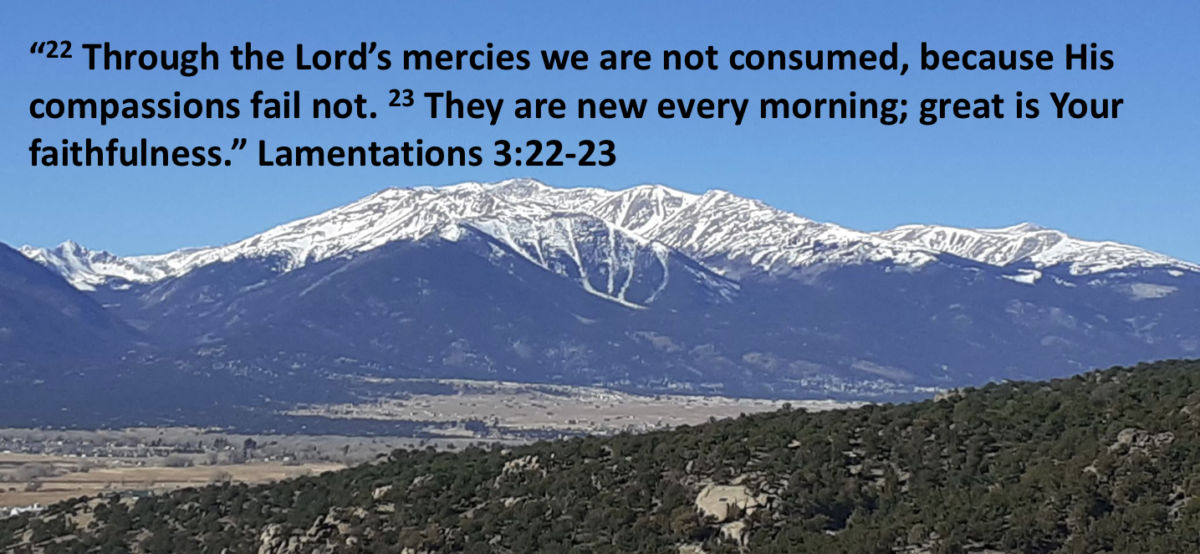“But you are a chosen generation, a royal priesthood, a holy nation, His own special people, that you may proclaim the praises of Him who called you out of darkness into His marvelous light.” I Peter 2:9
If you were asked, “Who are you?” how would you answer that question right now? You may say, “I am a teacher, a farmer, a doctor, a Hawkeye fan, a friend of…, a wife of…, a son of…, a guy who owns that fancy house or boat, a divorcee, an alcoholic, a drug addict, a victim of abuse….” We define ourselves by what we do or what was done to us, our feelings, what we possess, or by our associations with others. The problem with this is that all these people or things can change or be lost. But God wants us as Christians to see ourselves through His eyes which never changes. He has defined who we are in the Bible.
In the book of I Peter, the apostle Peter uses different
figures to describe the church consisting of Jewish and Gentile believers
(2:9). These descriptions provide a powerful description of how God views each
of His children. Seeing ourselves through God’s eyes is essential for
Christian growth and victory because we behave in the way we perceive
ourselves to be (cf. Proverbs 23:7). Let’s look at how God views us in verse 9:
– “You are a chosen generation.” God has “chosen”
you , not overlooked or ignored you. To be chosen means that others want to be
with us, to know us and spend time with us. May be you grew up not feeling
wanted. If you are a believer in Jesus Christ, you have been chosen by God to
have a special relationship with Him. Before this world was even made, God
chose you to have a special relationship with Him through Jesus Christ (cf.
Ephesian 1:4). So many children grow up in homes where their parents tell them
directly or indirectly, “We never wanted you. You were an accident… a big
surprise.” Child of God, your heavenly
Father has always wanted to be in a relationship with you. He chose
you for a purpose. He wants you to “proclaim the praises of Him” (2:9). Look
in a mirror and say to yourself, “I am chosen by God.” Are you seeing
yourself as God sees you? The more you believe what God says about you, the
more you will feel it and live it. No longer do you need to seek everyone’s approval
to avoid rejection. You are chosen by God which reveals your infinite worth
as a person.
– You are “a royal priesthood.” You are “royal,” not inferior. You are a person of high status and importance. Perhaps you have viewed yourself as being a nobody. No one seems to pay attention to you. God wants you to know that you are extremely significant because you are a member of the royal priesthood of God. In the Old Testament, there was a separate class of priests who represented the people of Israel before God, but in the New Testament, all believers are priests before God who worship, intercede, and minister (I Peter 2:5; cf. Revelation 1:6). Say to yourself, “I am a royal priest before God.” You no longer need to work hard to prove yourself to anyone because you are a member of God’s royal priesthood.
– You are part of “a holy nation.” Originally God wanted the nation of Israel to live distinctly “holy” lives before other nations to attract them to Himself (cf. Exodus 19:5-6; Leviticus 20:26; Deuteronomy 7:6; Isaiah 42:6). But Israel failed to be a Light to the nations because she preferred to be like those nations (cf. I Samuel 8:5), so now God wants His church to be His “holy nation” to go to all the world to preach His gospel to everyone (cf. Mark 16:15) as His ambassadors (cf. 2 Corinthians 5:20). We are to “proclaim” His praises because He called us “out of darkness into His marvelous light” (I Peter 2:9). Say to yourself, “I am a holy ambassador for Christ.” Therefore, you do not need to listen to the voice of this world that calls you to pursue your own sinful desires. God has set you apart to represent Jesus!
– You are “His own special people.” In Christ, we are “special” to the Lord. You are not a nobody. You are a somebody because God has declared you to be special to Him. You are greater than what is usual or common. You may not realize this, but God the Father loves you as much as He loves His own Son! Jesus prayed to His heavenly Father, “I in them, and You in Me; that they may be made perfect in one, and that the world may know that You have sent Me, and have loved them as You have loved Me” (John 17:23). God loves you just as much as He loves His only perfect Son! Say to yourself, “I am special to God.” Therefore, you no longer need to work hard to earn the love of others. You can rest in God’s outrageous love for you!
God wants us to know that we are chosen, royal, holy, and
special to Him. Each of these descriptions convey our infinite value and
significance to God as His children. The more we see ourselves as God sees
us, the more we will fulfill His purpose for our lives which is to proclaim
the praises of Him who called us out of the darkness of our sin and shame into
His marvelous light filled with His love and hope!
Prayer: Lord God thank you for declaring who I am in
Christ. I am chosen, not overlooked; royalty, not inferior; holy, not dirty;
special, not ordinary. Please apply these magnificent truths to the depths of
my being so I may proclaim Your praises for having called me out of the
darkness of my sin and shame into the marvelous light of Your love and hope!!!
In Jesus’ name. Amen.










